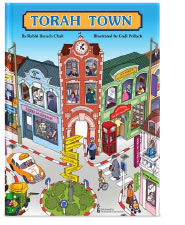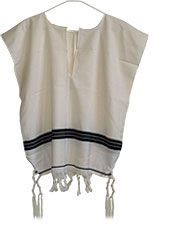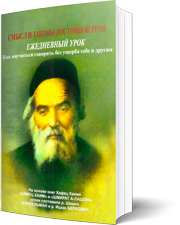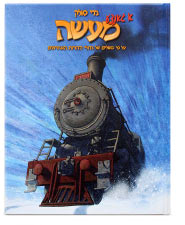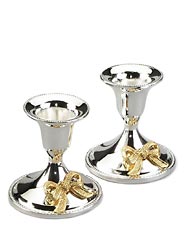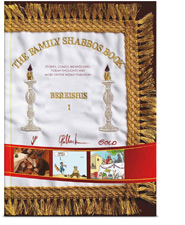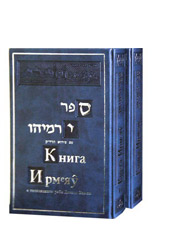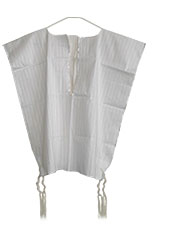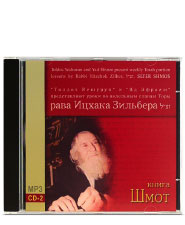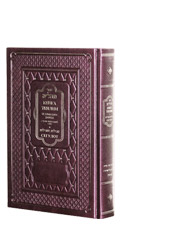
Chavrusa across the country, or: A Siyum once in three and a half years
But for every religious Jew, for whom learning Torah is the most important thing, finding a good chavrusa can be just as hard as finding a shidduch.
Chavrusa across the country, or: A Siyum once in three and a half years
There are many different chavrusos. Some chavrusos learn in kollel full time and some part time, others learn before or after work, still others learn on the phone... But for every religious Jew, for whom learning Torah is the most important thing, finding a good chavrusa can be just as hard as finding a shidduch.
Finding a chavrusa is especially difficult for a beginning learner who is still far removed from Jewish life, and it is even more difficult for Russian immigrants. The decision made by Gedolei Yisroel eight years ago to establish a network of evening chavrusa kollelim for Russian-speaking Jews under the direction of Rav Yitzchok Zilber zt"l was based on this very difficulty. When Rav Yitzchok was still alive, Rav Elyashiv shlit"a said about him: There is no doubt whatsoever that this is one of the tzadikim on whom the world stands.
Rav Yitzchok taught Torah his entire life, and virtually all of today's Russian-speaking community leaders, directors of places of Torah learning, lecturers, maggidei shiur and yeshiva teachers are his students. Rav Zilber zt"l did not just lecture, he actually gave himself over entirely to the other person with whom he was in contact. A connection with him was always very personal, and this personal contact, the chavrusa, is the foundation of Toldos Yeshurun.
Toldos Yeshurun's main activity is arranging chavrusos for Russian-speaking immigrants. There are soldiers, there are university students, there are the non-religious and the already observant, there are those who learn via Skype, those who come to
Toldos Yeshurun, tries to find a suitable Russian-speaking teacher for each student. Sometimes, there are exotic chavrusos, like the Russian-speaking Jewish sailors who got stuck in
But I have never heard about a chavrusa like this one Vitaliy holds a Professor in water and wastewater technology, currently teaches at
Our story is about this unique chavrusa.
While working on his Ph.D. on "Melioration and Purification of Water" in the
"I had a few questions", says Vitaliy, "and I was not going to spend more than one evening in a synagogue. I am not a friend of small talk anyway, I don't like to "just talk". I remember asking what was the most important book in Judaism. My chavrusa opened a volume of the Talmud. I was very surprised, and he said: "Let's learn a few lines, and you will understand."
Since then, despite the fact that I did not observe anything, learning Talmud became the most interesting and the most important activity for me. Slowly, a month at a time, a year at a time, I began observing a little bit. In the beginning, I would say the Shema, pray a little bit and drop by a shul, sometimes I wore a kipa, and I tried not to eat non-kosher food. In the course of the years, we have gone from lighting Shabbos candles to making Shabbos meals and learning… Now, we are fully observant.
"What was the most difficult?" I ask. "Shabbos, kashrus, taharas hamishpacha?" He looks pensive. "My wife. She did not want to change anything about our lives, but, thank G-d, we had two more children and our entire life has changed. That was a very difficult moment – when one partner is doing teshuvah while it does not mean anything to the other, this is very dangerous, the family could break apart. I cannot imagine how we lived without being observant. It hurts me to look at my relatives and acquaintances who have not yet discovered Judaism for themselves. This is what enabled me to taste life, to experience its meaning."
Avrech Daniel Levenstein, Vitaliy's chavrusa, can relate. There were times when his wife did not quite catch up with him. When the kitchen was not yet kashered, there were conflict situations and she would say to him: "If you want to eat – eat, if not – don't, this food is not kosher." A person cannot change in a week, or a month, it is a long, difficult process to change oneself.
Says Avrohom Cohen, director of Toldos Yeshurun: "We are opening up chavrusa programs in the places where Russian-speaking immigrants live, so that it should be practical for them to attend. It has been about a year that such a program exists in Beer Sheva, and we have offered Vitaliy to learn there. Now, b'ezras Hashem, a new program is opening up right in
Rav Ben Tzion Zilber, Rosh Yeshiva of Toldos Yeshurun, adds: "Our main principle remains to provide that which the Russian-speaking Jews need most. When Russian-speaking yeshivos were closing down, we opened a yeshiva. When there were many Russian-speaking avrechim, but no Rabbis, Toldos Yeshurun launched a kollel for halachic studies for the community leaders and directors of evening kollelim of today. Still, the chavrusos all over the country remain the most important to us."
We went inside the inner room of the kollel, where chavrusos unwillingly closed their books, washed their hands and sat down to eat – it was a seudas mitzvah, after all…
I wondered: What makes these young men come to learn? What force makes Vitaliy drive through half of the country once a week just to learn? It is unnecessary to say that the students of Toldos Yeshurun do not receive any stipends or travel expenses or other material retributions. Many are not yet observant and come with their kipah in their pocket.
I posed my last question to Vitaliy. Why do the "Russians" come to learn in Toldos Yeshurun? Why does one bring along another? What is the secret of this attraction?
"That's easy", he says. "The chavrusa."




